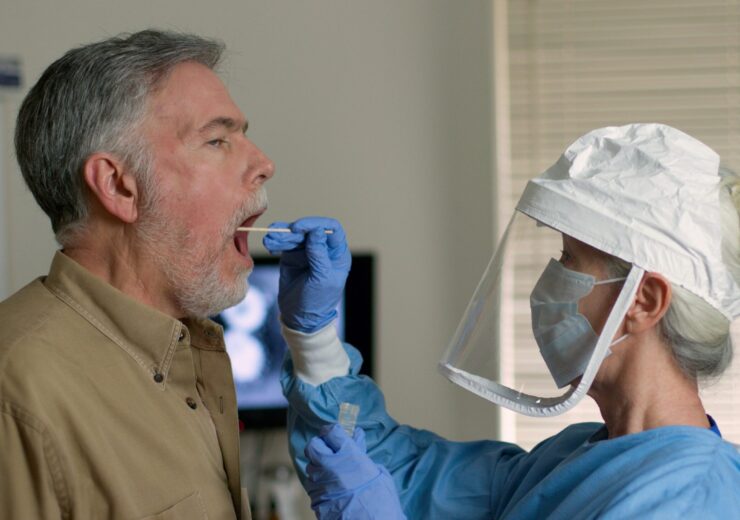US researchers have found frequent, rapid-turnaround testing may be more important than relying on high sensitivity tests to curb the spread of Covid-19

Many of the 'gold standard' Covid-19 tests currently being used are either conducted in a healthcare setting or need to be sent to a lab for analysis (Credit: JHDT Productions/Shutterstock)
Frequent, rapid-turnaround Covid-19 testing could drive the virus towards extinction in the space of just six weeks, according to a recent study.
A paper published online by US researchers also suggests that using cheaper tests – and producing results more quickly – may be more important than relying on the high sensitivity provided by gold standard clinical tests when it comes to curbing the virus’ spread.
Strategies involving these inexpensive, faster tests could lead to “stay-at-home orders” for individuals without restaurants, bars, retail stores and schools needing to be shut down.
The paper indicating these possibilities was published in scientific journal Science Advances by researchers from the University of Colorado Boulder and Harvard University, who used mathematical modeling to forecast the hypothetical impact of different Covid-19 screening approaches.
In one scenario they examined, where 4% of individuals in a city were already infected, rapidly testing three out of four people every three days reduced the number ultimately infected by 88% and was “sufficient to drive the epidemic towards extinction within six weeks”.
The study’s lead author, and assistant professor of computer science at the University of Colorado Boulder, Daniel Larremore, said: “Our big picture finding is that, when it comes to public health, it’s better to have a less sensitive test with results today than a more sensitive one with results tomorrow.
“Rather than telling everyone to stay home so you can be sure that one person who is sick doesn’t spread it, we could give only the contagious people stay-at-home orders so everyone else can go about their lives.
“It’s time to shift the mentality around testing from thinking of a Covid-19 test as something you get when you think you are sick to thinking of it as a vital tool to break transmission chains and keep the economy open.”
Benefits of frequent, rapid-turnaround Covid-19 testing
The study’s researchers used numerous pieces of available literature on how viral load of the SARS-CoV-2 virus climbs and falls inside the body during infection, when people tend to experience symptoms, and when they become contagious.
They then forecasted the impact of screening with different kinds of tests in three hypothetical scenarios – one involving 10,000 individuals, one involving a university-type setting of 20,000 people and one in a city with a population of 8.4 million.
When it came to curbing the spread of coronavirus, they found that testing frequency and turnaround times are much more important than sensitivity.
For instance, in one scenario using a large city, widespread twice-weekly testing with a rapid – but less sensitive – test reduced the virus’ degree of infectiousness, or ‘R number’, by 80%, while twice-weekly testing with a more sensitive PCR (polymerase chain reaction) test, which takes up to 48 hours to return results, reduced infectiousness by 58%.
In fact, when the amount of testing was the same, the rapid test always reduced infectiousness more effectively than the slower, more sensitive PCR test – something the researchers attributed to the fact that about two thirds of infected people have no symptoms and continue to spread the virus as they await their results.
Dr Michael Mina, an assistant professor of epidemiology at the Harvard T.H. Chan School of Public Health – who is also a senior co-author on the recently-published study – said: “These rapid tests are contagiousness tests – they are extremely effective in detecting Covid-19 when people are contagious.”
He added that these rapid tests are affordable too, costing as little as $1 each and sometimes returning results in 15 minutes, while some PCR tests can take several days.
Mina also said that, if the US government was to send simple, cheap tests to every home – and just 50% of Americans tested themselves weekly and self-isolated if they returned a positive result, the impact would be “profound”.
“Within a few weeks we could see this outbreak going from huge numbers of cases to very manageable levels,” Mina concluded.
